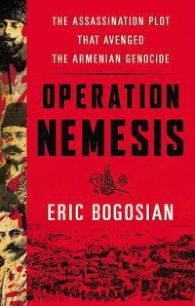The Andromeda Strain - Crichton Michael (серия книг txt) 📗
19. Crash
FOR ARTHUR MANCHEK, THERE WAS A CERTAIN kind of horror in the telephone conversation. He received it at home, having just finished dinner and sat down in the living room to read the newspapers. He hadn't seen a newspaper in the last two days, he had been so busy with the Piedmont business.
When the phone rang, he assumed that it must be for his wife, but a moment later she came in and said, "It's for you. The base."
He had an uneasy feeling as he picked up the receiver. "Major Manchek speaking."
"Major, this is Colonel Burns at Unit Eight." Unit Eight was the processing and clearing unit of the base. Personnel checked in and out through Unit Eight, and calls were transmitted through it.
"Yes, Colonel?"
"Sir, we have you down for notification of certain contingencies. " His voice was guarded; he was choosing his words carefully on the open line. "I'm informing you now of an RTM crash forty-two minutes ago in Big Head, Utah."
Manchek frowned. Why was he being informed of a routine training-mission crash? It was hardly his province.
"What was it?"
"Phantom, Sir. En route San Francisco to Topeka."
"I see," Manchek said, though he did not see at all.
"Sir, Goddard wanted you to be informed in this instance so that you could join the post team."
"Goddard? Why Goddard?" For a moment, as he sat there in the living room, staring at the newspaper headline absently- NEW BERLIN CRISIS FFARED- he thought that the colonel meant Lewis Goddard, chief of the codes section of Vandenberg. Then he realized he meant Goddard Spaceflight Center, outside Washington. Among other things, Goddard acted as collating center for certain special projects that fell between the province of Houston and the governmental agencies in Washington.
"Sir," Colonel Burns said, "the Phantom drifted off its flight plan forty minutes out of San Francisco and passed through Area WF."
Manchek felt himself slowing down. A kind of sleepiness came over him. "Area WF?"
"That is correct, Sir.
"When?"
"Twenty minutes before the crash."
"At what altitude?"
"Twenty-three thousand feet, Sir."
"When does the post team leave?"
"Half an hour, Sir, from the base."
"All right," Manchek said. "I'll be there."
He hung up and stared at the phone lazily. He felt tired; he wished he could go to bed. Area WF was the designation for the cordoned-off radius around Piedmont, Arizona.
They should have dropped the bomb, he thought. They should have dropped it two days ago.
At the time of the decision to delay Directive 7-12, Manchek had been uneasy. But officially he could not express an opinion, and he had waited in vain for the Wildfire team, now located in the underground laboratory, to complain to Washington. He knew Wildfire had been notified; he had seen the cable that went to all security units; it was quite explicit.
Yet for some reason Wildfire had not complained. Indeed, they had paid no attention to it whatever.
Very odd.
And now there was a crash. He lit his pipe and sucked on it, considering the possibilities. Overwhelming was the likelihood that some green trainee had daydreamed, gone off his flight plan, panicked, and lost control of the plane. It had happened before, hundreds of times. The post team, a group of specialists who went out to the site of the wreckage to investigate all crashes, usually returned a verdict of "Agnogenic Systems Failure." It was military doubletalk for crash of unknown cause; it did not distinguish between mechanical failure and pilot failure, but it was known that most systems failures were pilot failures. A man could not afford to daydream when he was running a complex machine at two thousand miles an hour. The proof lay in the statistics: though only 9 per cent of flights occurred after the pilot had taken a leave or weekend pass, these flights accounted for 27 per cent of casualties.
Manchek's pipe went out. He stood, dropping the newspaper, and went into the kitchen to tell his wife he was leaving.
"This is movie country," somebody said, looking at the sandstone cliffs, the brilliant reddish hues, against the deepening blue of the sky. And it was true, many movies had been filmed in this area of Utah. But Manchek could not think of movies now. As he sat in the back of the limousine moving away from the Utah airport, he considered what he had been told.
During the flight from Vandenberg to southern Utah, the post team had heard transcripts of the flight transmission between the Phantom and Topeka Central. For the most part it was dull, except for the final moments before the pilot crashed.
The pilot had said: "Something is wrong."
And then, a moment later, "My rubber air hose is dissolving. It must be the vibration. It's just disintegrating to dust."
Perhaps ten seconds after that, a weak, fading voice said, "Everything made of rubber in the cockpit is dissolving."
There were no further transmissions.
Manchek kept hearing that brief communication, in his mind, over and over. Each time, it sounded more bizarre and terrifying.
He looked out the window at the cliffs. The sun was setting now, and only the tops of the cliffs were lighted by fading reddish sunlight; the valleys lay in darkness. He looked ahead at the other limousine, raising a small dust cloud as it carried the rest of the team to the crash site.
"I used to love westerns," somebody said. "They were all shot out here. Beautiful country."
Manchek frowned. It was astonishing to him how people could spend so much time on irrelevancies. Or perhaps it was just denial, the unwillingness to face reality.
The reality was cold enough: the Phantom had strayed into Area WF, going quite deep for a matter of six minutes before the pilot realized the error and pulled north again. However, once in WF, the plane had begun to lose stability. And it had finally crashed.
He said, "Has Wildfire been informed?"
A member of the group, a psychiatrist with a crew cut- all post teams had at least one psychiatrist- said, "You mean the germ people?"
"Yes."
"They've been told," somebody else said. "It went out on the scrambler an hour ago."
Then, thought Manchek, there would certainly be a reaction from Wildfire. They could not afford to ignore this.
Unless they weren't reading their cables. It had never occurred to him before, but perhaps it was possible- they weren't reading the cables. They were so absorbed in their work, they just weren't bothering.
"There's the wreck," somebody said. "Up ahead."
Each time Manchek saw a wreck, he was astonished. Somehow, one never got used to the idea of the sprawl, the mess, the destructive force of a large metal object striking the earth at thousands of miles an hour. He always expected a neat, tight little clump of metal, but it was never that way.
The wreckage of the Phantom was scattered over two square miles of desert. Standing next to the charred remnants of the left wing, he could barely see the others, on the horizon, near the right wing. Everywhere he looked, there were bits of twisted metal, blackened, paint peeling. He saw one with a small portion of a sign still intact, the stenciled letters clear: DO NOT. The rest was gone.
It was impossible to make anything of the remnants. The fuselage, the cockpit, the canopy were all shattered into a million fragments, and the fires had disfigured everything.
As the sun faded, he found himself standing near the remains of the tail section, where the metal still radiated heat from the smoldering fire. Half-buried in the sand he saw a bit of bone; he picked it up and realized with horror that it was human. Long, and broken, and charred at one end, it had obviously come from an arm or a leg. But it was oddly clean- there was no flesh remaining, only smooth bone.
Darkness descended, and the post team took out their flashlights, the half-dozen men moving among, smoking metal, flashing their yellow beams of light about.
It was late in the evening when a biochemist whose name he did not know came up to talk with him.
"You know," the biochemist said, "it's funny. That transcript about the rubber in the cockpit dissolving."
"How do you mean?"
"Well, no rubber was used in this airplane. It was all a synthetic plastic compound. Newly developed by Ancro; they're quite proud of it. It's a polymer that has some of the same characteristics as human tissue. Very flexible, lots of applications. "
Manchek said, "Do you think vibrations could have caused the disintegration."
"No," the man said. "There are thousands of Phantoms flying around the world. They all have this plastic. None of them has ever had this trouble."
"Meaning?"
"Meaning that I don't know what the hell is going on," the biochemist said.
20. Routine
SLOWLY, THE WILDFIRE INSTALLATION SETTLED into a routine, a rhythm of work in the underground chambers of a laboratory where there was no night or day, morning or afternoon. The men slept when they were tired, awoke when they were refreshed, and carried on their work in a number of different areas.
Most of this work was to lead nowhere. They knew that, and accepted it in advance. As Stone was fond of saying, scientific research was much like prospecting: you went out and you hunted, armed with your maps and your instruments, but in the end your preparations did not matter, or even your intuition. You needed your luck, and whatever benefits accrued to the diligent, through sheer, grinding hard work.
Burton stood in the room that housed the spectrometer along with several other pieces of equipment for radioactivity assays, ratio-density photometry, thermocoupling analysis, and preparation for X-ray crystallography.
The spectrometer employed in Level V was the standard Whittington model K-5. Essentially it consisted of a vaporizer, a prism, and a recording screen. The material to be tested was set in the vaporizer and burned. The light from its burning then passed through the prism, where it was broken down to a spectrum that was projected onto a recording screen. Since different elements gave off different wavelengths of light as they burned, it was possible to analyze the chemical makeup of a substance by analyzing the spectrum of light produced.



